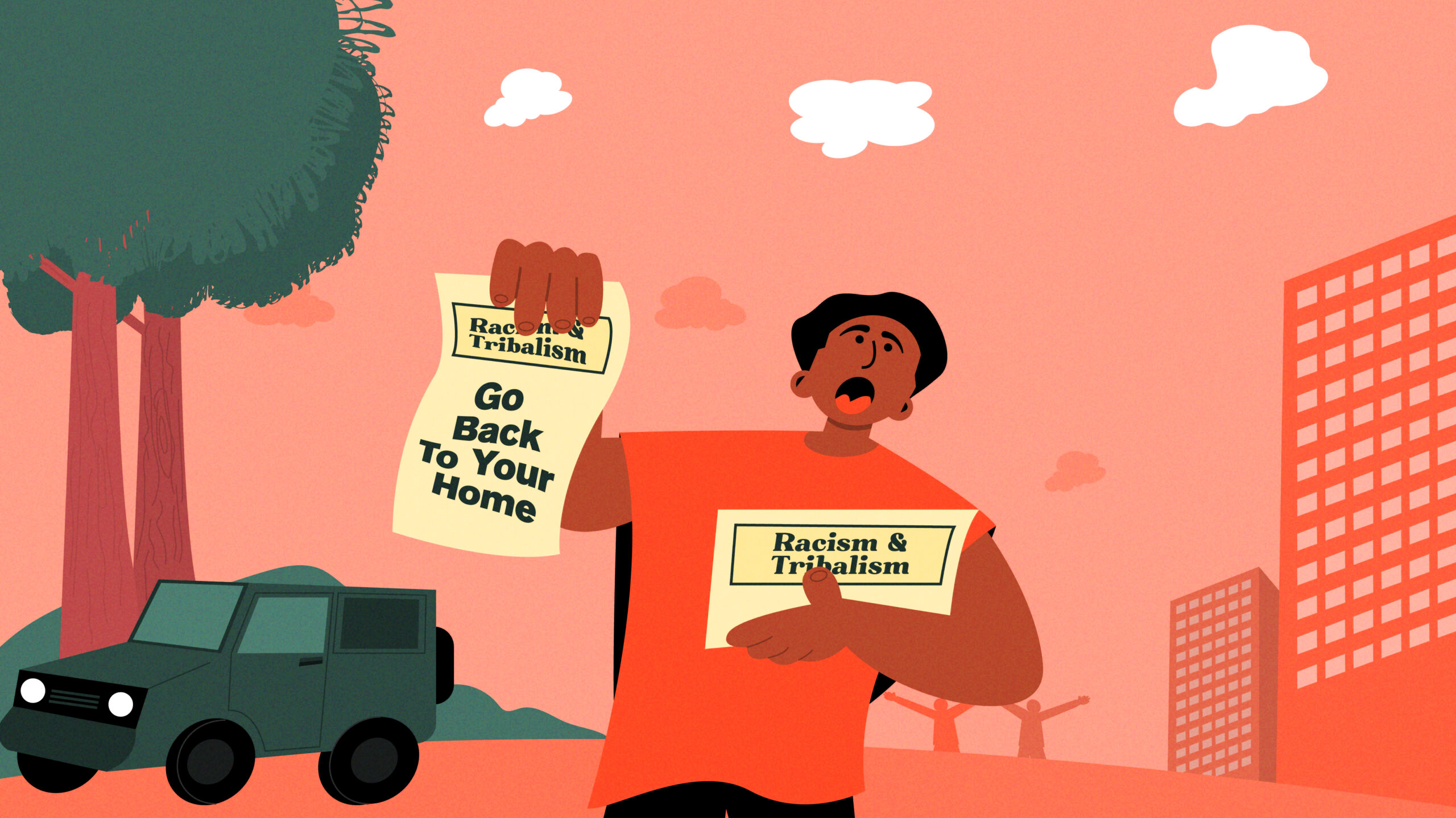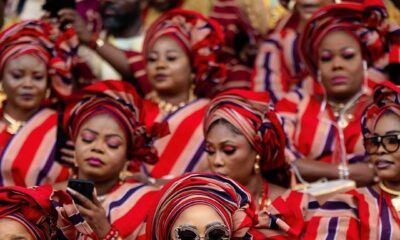Features
“Go Back To Your…” What Racism and Tribalism Look Like

I have seen videos of racism online, where white people tell Black people, particularly Africans, “go back to your country, go back to where you came from.” In the videos, their faces are contorted in rage, brows angry, lips curled, eyes slit, veins popping and fingers pointing in anger. Their body language exudes disgust, hostility and sometimes fear.
Then it is swiftly followed by “you don’t belong here.”
Racism is an irrational antagonism of people outside your race. The discrimination and prejudice against people on the basis of their race or ethnic group, especially when they are the minority or already marginalised. A fear that they are polluting places with their presence and will leave a trail of destruction and violence in their wake. A fear of them becoming too much, too clustered in a particular location, having the boldness to demand to be treated equally or pursue political positions and then overtake the indigenes. This fear springs from one root: the colour of the skin. It’s a deep-seated bias and discrimination that manifests in insidious ways and, at every turn, leaves a trail of prejudice and inequality.
Racism gathers strength as it swirls around, picking up momentum and bringing everything it comes across to ruin. A word, a sentence, a joke and people can suddenly find themselves fighting for their lives, knees on their necks, gasping for breath, running to shelter or pleading to survive.
Tunisia: Police detained hundreds of migrants, landlords summarily evicted hundreds from their homes and hundreds of others were fired from work, rights groups say.
In February, the president of Tunisia, Kais Saied, turned his ire on sub-Saharan Africans in the country, accusing them of taking part in a conspiratorial plot to change Tunisia’s demographics and make it “only an African country that has no affiliation to Arab and Islamic nations,” according to The Washington Post. Kais Saied claimed illegal immigrants of sub-Saharan African nationals were a source of “violence, crime and unacceptable acts,” and called for “an end to this phenomenon.”
Since then, hundreds of migrants have been detained by the police, landlords evicted hundreds from their homes and hundreds of others were fired from work, according to VOA News. Migrants are being asked to go back to wherever they came from.
Tunisia: “Go back to your country”
Kais Saied has since denied racist talks. He added that Tunisia was honoured to be an African country and announced a relaxation of visa rules for African citizens, allowing stays of up to six months instead of three without seeking residency, and of a year for students. But racism and violence are like furnaces. Once set in motion, their flames cannot be doused by spittle and words.
_
Lagos, Nigeria: “Go back to your state.”
I imagine a few people have had their purses fattened and been charged to do one thing: cause online tribal and ethnic discord. I picture them in a strategy meeting, poring over a spreadsheet that lays out their plan. The sheet is filled with tribal slurs and the vilest of words, carefully chosen to provoke outrage and incite hatred.
This tactic has so far been disturbingly effective in our increasingly polarized world. I see different groups indulging them – the closeted tribalists who now have the opportunity to air their thoughts, the hurt and offended, those who approve, and those who are simply catching cruise.
Since the presidential elections, I’ve made a conscious effort to limit my use of Twitter. My go-to platform for conversations had suddenly become a ground for toxic tribalism and bigotry for me – all within a few days. In the few times I’d been there, I’d seen some of the vilest opinions of people, regurgitated again and again with reckless abandon. And then there are photos of ‘My Lagos, Not Your Lagos’ circulating. Everyone knows the root from which this discussion stemmed but all I see is a dangerous game.
Songs of war are easily chanted, the music easily danced to, but the guns are too heavy and the aftermath bloody.
There are some drums you never beat in a dancing competition – drums of tribalism, racism, violence, and the like. The festival may come and go, but long after the drums fall silent, people will continue to dance. People also never forget nor forgive slurs and discriminations, and stereotypes snake their way through generations, planting hatred in the hearts of young people until they become enamoured with the idea of violence and bloodshed. And when the time comes, they call for war. But hatred and words are cheap, it is the guns that are heavy and the wars expensive.
“Go back to your state” is akin to “go back to your country.” It is you believing that people of certain demography have no place where you are and should not be given a seat at your table. It is your belief of superiority over people of certain social standing, clamouring for them to be stripped of the same opportunities you have access to. You want a progressive megacity but chant “go back to your state” and then use slurs that perpetuate disunity and hinder progress towards a more inclusive and accepting society. And if you are one of those who love to say ‘Nigeria to the world’ when a Nigerian achieves international recognition, then you ought to check yourself for hypocrisy. ‘Nigeria to the world’ only exists because other people and systems have worked to be more accepting of people of all colours, shapes and sizes, and worked towards creating opportunities for everyone. They have chosen to focus on the person rather than where they come from.
If we want a state, country or world that works, then humanity must always take precedence over geography.
As we sow the seeds of tribal discord or amplify the voices of bigots, online and offline, we must question the long-term ramifications of our actions, and ask ourselves if it will all be worth it in the end.
Elections will come and go, but would you be able to look at your neighbour the same?





















